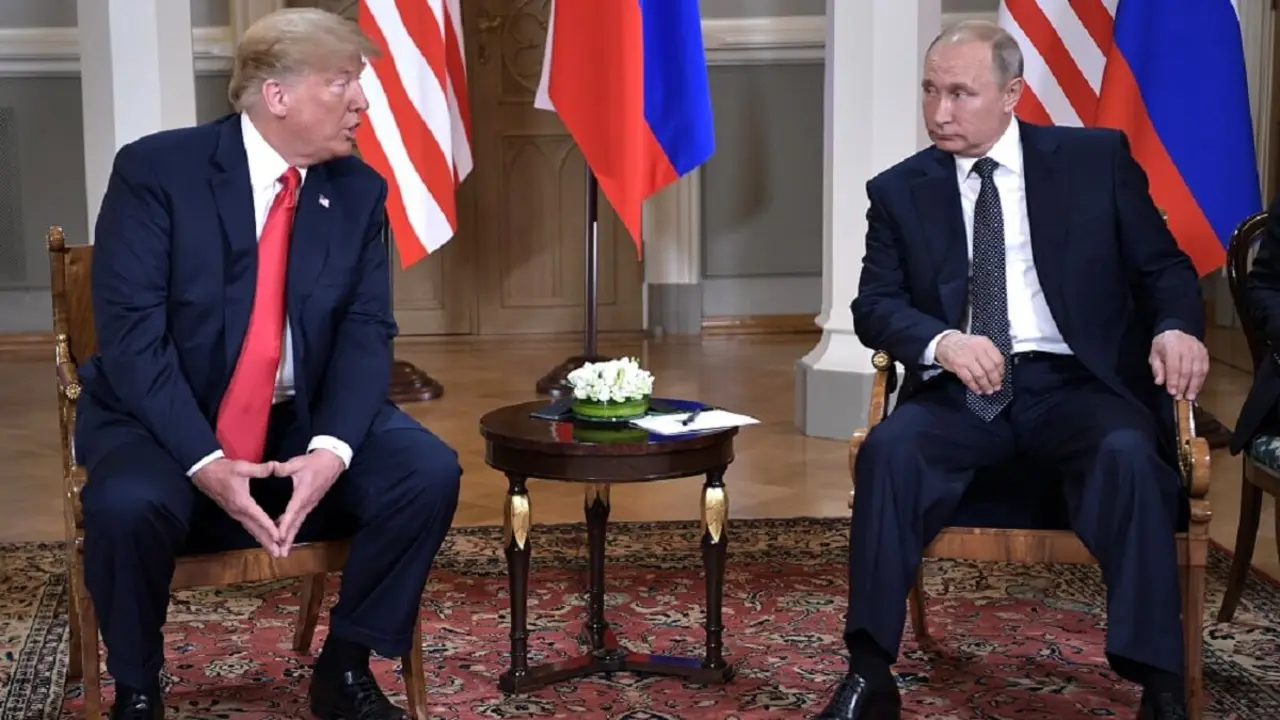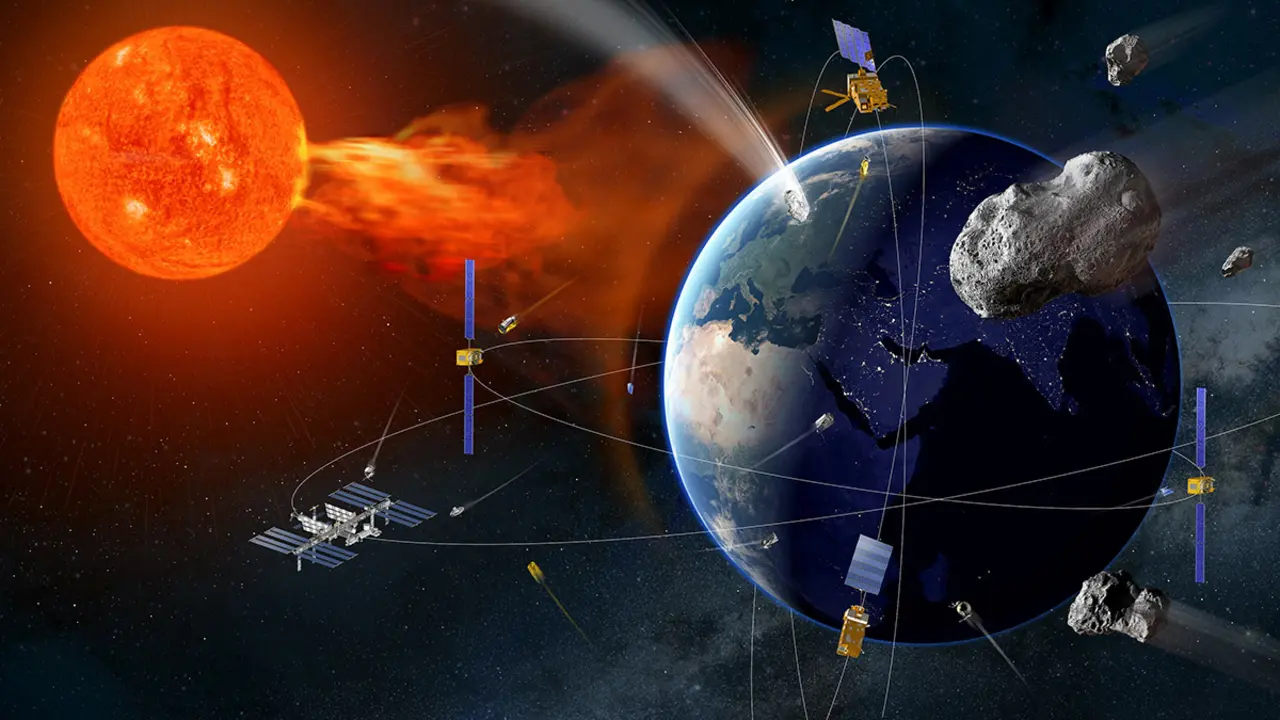SENER, GMV and Escribano combine their capabilities to multiply their missile potential

Three Spanish technology companies have joined their capabilities in design, development, production and logistical support in weapons systems with the aim of achieving a multiplier effect in the select global missile industry.
GMV and Escribano E&M have joined forces with SENER Aerospace and on 10 May signed a collaboration agreement to work together to provide solutions for national and international programmes and cooperation in high-performance guided missile and munitions systems.
The newly formed cluster of companies has taken active form in the new company called SMS - an acronym for Spanish Missil System - which, under the leadership of Fernando Mato, aims to bring together the national industrial fabric in the field of advanced weapons systems, two of the main exponents of which are missiles and guided weapons.

Escribano E&M, GMV and SENER Aerospace have complementary and in some cases overlapping technological capabilities. Each of them has decades of experience and their products are the result of their presence in national projects and their participation as subcontractors of the world's major missile manufacturers, including the American corporation Raytheon, the European MBDA, the German Diehl or the Swedish Saab Bofors Dynamics.
The three partner companies emphasise the "humility" of their initiative. We are perfectly aware," they stress, "that the Spanish defence industry does not have the broad set of capabilities needed to develop a complete missile system. Moreover, unlike in other European countries, there is no corporation in Spain to lead the missile sub-sector, which has led to a fragmented industrial fabric that has made it difficult to create a technological base in this defence segment.

Nevertheless, missiles in all their variants are of growing importance in the fire and deterrence potential of the armed forces of all countries. Having them available for all combat scenarios and at all ranges contributes to strategic autonomy and national sovereignty. These are the reasons why José Julián Echevarría, as head of SENER Aerospace, and Rafael Orbe, as General Manager of its Defence Division, decided last March to create the MSM company.
The opportunity of SENER's initiative was backed by Ángel Escribano and Manuel Pérez Cortés, the executive heads of Escribano E&M and GMV's Defence and Security branch, respectively. The three companies have formed the embryo of national industries capable of supporting the demands made by the Ministry of Defence in its procurement, maintenance and modernisation processes for its anti-tank, anti-aircraft defence, anti-ship, air-to-air and air-to-ground missiles, to cite its most predominant uses.
In the case of Escribano E&M, it brings to SMS its expertise in "vision technologies in the visible and infrared spectra and in the guidance and navigation of smart munitions," says its CEO. The company has met the standards and manufactures for the world's leading missile development company, US-based Raytheon. It has also developed its SALK and FGK terminal guidance systems, the former providing semi-active laser guidance for 70 millimetre rockets, while the latter guides the trajectory of rockets and artillery projectiles between 127 and 300 millimetres.

With its proven capabilities as an integrating company, GMV is contributing to the project with its transversal technologies of in-house development in simulation, robotics and critical software and algorithm development, as well as in guidance, navigation and control, essential for missile firing positions.
SENER has been involved in missiles for more than 20 years. Its speciality is the design, development, production, integration, testing and logistical support of actuation and control systems for aerodynamic surfaces, which enable missiles to fly and evolve on their trajectory towards their target. With SMS, we have "a great opportunity for the defence industry to play our part in the country's recovery", emphasises Rafael Orbe.

Its technology makes aerodynamic actuation and electronic control systems a reality for half a dozen major missile models. These include the KEPD 350 Taurus air-to-ground cruise missile, for which it is the world's sole manufacturer of the FASS subsystem, responsible for directing the missile's trajectory, and of which it has manufactured more than 700 units. It also works for the European company MBDA on the medium- and long-range, high-speed, highly manoeuvrable Meteor air-to-air missile, for which it has produced more than 1,000 subsystems that control the movement of its rear wings.
For the German manufacturer, Diehl has produced more than 4,000 units of the control system for the short-range air-to-air IRIS-T and its extended-range surface-to-air version IRIS-T SL. It has worked for Raytheon on the NSM naval missile and for the Swedish manufacturer Saab on the RBS-70 NG ground-to-air short-range missile, in which SENER is the design authority and sole supplier of one of the key pieces of equipment for the firing position, of which it has supplied more than 120 units.
In parallel to having set up an industrial team focused on missiles and guided weapons, SENER Aerospace has reinforced its Space and Astronomy Division with an increase in the capacities of its Scientific and Technological Research Centre in Catalonia. Located in the town of Cerdanyola del Vallés, just 12 kilometres north of Barcelona, two clean rooms of 750 and 250 m2 have recently been added to its facilities.
Both are dedicated to testing and validating electronic equipment on board space platforms, especially to automatically manufacturing and integrating radio frequency electronic circuits based on gallium nitride (GaN) technology, "key to future generations of communications satellites", emphasises Diego Rodríguez, SENER Aerospace's General Manager for Space. The two new clean rooms meet the high standards required by the European Space Agency (ESA), the North American NASA and the world's major satellite manufacturing companies.

SENER Aerospace's aspirations are to be one of the main industrial groups in the space sector on the old continent. Already considered the European leader in precision mechanical systems for satellites and on-board instruments due to its 100% reliability rate, the new pillar of its growth is focused on telecommunications.
Its power amplifier technology and low-noise GaN technology are in the OneSat and Spainsat NG family of satellites that Airbus manufactures for the Spanish company Hisdesat. Its antennas, passive and active radio frequency equipment already travel in the Galileo, Globalstar 2G, O3B, Iridium NEXT and OneWeb constellations and Diego Rodriguez is confident of winning new contracts in 2021 in programmes such as GlobalStar, TeleSat and SES Next.









